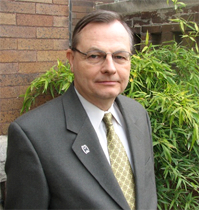Being a Humanist Dad

When becoming a humanist dad with the birth of my first child, Livia, in 1984, I realized that my wife and I were faced with two childrearing issues. The first was the concern of every parent: how to bring about a positive outcome—a healthy, happy, and ethical human being. The second was the concern of every humanist parent, at least in the United States: how to address issues associated with our minority philosophic outlook.
I’ve written on the first of these questions in “A Humanist Moral Education for Children,” originally published in Humanist Living in 1999. So here I will take on the second.
As a humanist father, developing rational thinking in my children was an important goal. So I made it a point to give honest answers and use a little Socratic dialogue when faced with difficult childhood questions, particularly the sorts for which dishonest or false religious answers are common. Here’s how I remember one such conversation.
Livia: Daddy, is it true that everybody has to die?
Me: Yes it is.
Livia: But I don’t want to die.
Me: Well, aren’t you healthy right now? There’s no reason why you would die any time soon.
Livia: But I don’t ever want to die.
Me: Well, Livia, if you play your cards right, by eating good food and playing safe, you could live to be a hundred.
Livia: Wow, a hundred! Really?
Me: Yes. So it’s alright.
Livia: But Daddy . . .
Me: Yes dear.
Livia: I don’t know how to play cards.
When it came to popular childhood beliefs, like Santa Claus, the Easter Bunny, and Noah and the Ark, my approach was to treat these as fairy tales and stories, not something real. I took the same approach to magic.
But I wasn’t sure at first how I was going to address the god question. For you see, my view has long been ignostic, holding that the term “God,” as used by theologians at least, is essentially incoherent. Therefore it’s neither true nor false that a god exists. Moreover, I wanted to test the theistic notion that questions about a god are supposed to arise naturally, even if children aren’t exposed to the idea. So I deliberately avoided discussing the matter with my children until they brought it up themselves.
Well, Livia first brought it up while in kindergarten because one of the children there started preaching to her. So I asked what this child had said, deciding to work from whatever idea had been expressed. If it was coherent, I would address it on that basis; if incoherent I would ask Livia what she thought it meant.
Of course the idea presented, as my daughter could relate it, was a mix of both clear and vague ideas. So I asked her if she thought it made any sense. She seemed confused. Then I focused on the clear parts, asking, “Have you seen anything like that, in the sky or anywhere else?” She said no. So I told her that, until she did, she didn’t have to believe in it. I also made it plain that “in our family we don’t believe in a god because we don’t see any reason to.” And then I carefully added that most people do believe in a god, even when they don’t have a good reason, so she’d probably be hearing more about it. My main point, however, was that it’s OK to disbelieve, “and you don’t have to tell anybody if you don’t want to.”
This latter was, I thought, particularly important in our community. I saw no good reason why my children needed to go out of their way to signal their minority status. It was enough that they had permission to disbelieve, even when everyone else believed. They could tell anyone they wanted to but could also let the matter go. Usually they did the latter.
On one occasion, however, my second daughter, Julia, while in high school, was faced by a school counselor who directly asked her if she believed in God. Julia simply answered no. The counselor was shocked, asking, “Then who created everything?” Julia’s answer: “Who created God?” The counselor was actually stumped by this direct and simple counter question. And the conversation ended right there, the topic never coming up again.
Overall, I’ve been happy with the parenting approaches my wife and I took, which have reaped long-term benefits in our two children, both who are now adults.
